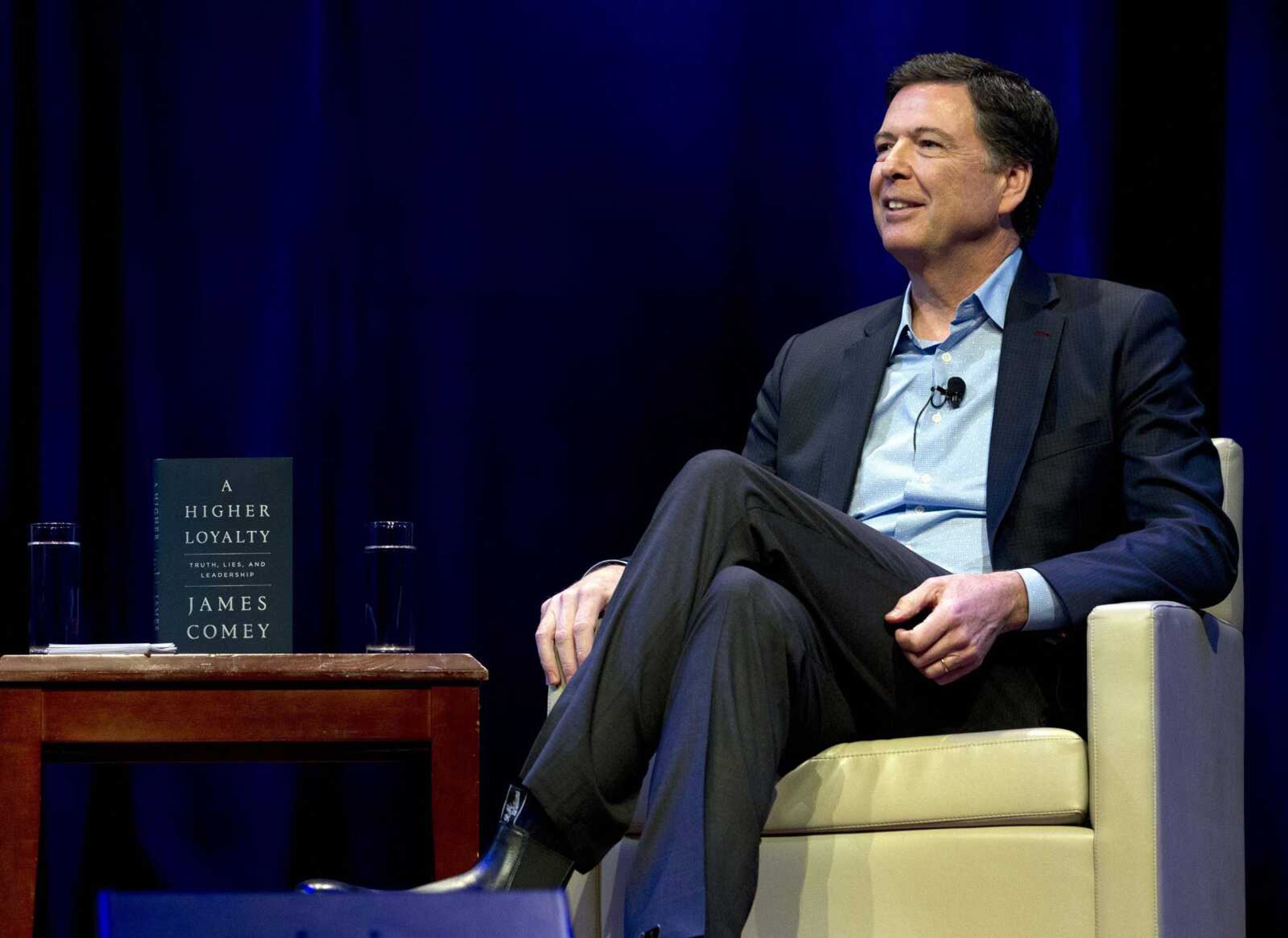Comey: Attacks on the FBI make America less safe
WASHINGTON -- President Donald Trump's political attacks on the FBI make America less safe because they undermine public confidence the bureau is an "honest, competent and independent" institution, fired director James Comey told The Associated Press...
WASHINGTON -- President Donald Trump's political attacks on the FBI make America less safe because they undermine public confidence the bureau is an "honest, competent and independent" institution, fired director James Comey told The Associated Press.
In a telephone interview, Comey also said it was logical special counsel Robert Mueller would seek to interview Trump since the president is a subject of an investigation into Russian meddling in the 2016 presidential election. Comey ruled out seeking elected office and said, as a leader, he took responsibility for some of the turmoil surrounding the FBI in recent months.
The ex-FBI chief said it was clear the president's blistering attacks on the bureau, including Trump's calls for scrutiny of his political opponents and his suggestion Comey should be jailed, affect public safety in "hundreds and thousands of ways" -- especially if crime victims no longer believe an agent knocking on their door will help them or an agent testifying before a jury can be believed.
"To the extent there's been a marginal decrease in their credibility at that doorway, in that courtroom and in thousands of other ways, their effectiveness is hit. So it's hard," Comey said.
"You're not going to be able to see it, but logic tells me that it's there, which is why it's so important that we knock it off as a political culture."
Trump fired Comey last May, an act now under investigation by Mueller for possible obstruction of justice. The White House initially said Trump had fired him over his handling of the Hillary Clinton email case, but the president later said he was thinking of "this Russia thing" when he made the move.
Comey is now promoting his new book, "A Higher Loyalty," and has given a series of interviews in which he has described his interactions with the president and characterized him as morally unfit for office.
But his departure from the bureau has also been followed by a cascade of negative headlines seeming to have given ammunition to critics of the FBI, including Trump.
For one thing, Comey is involved in an unusually public disagreement with his former deputy director, Andrew McCabe, over the authorization of a news media disclosure. McCabe was fired in March amid a report from the Justice Department's inspector general that concluded he had misled internal affairs investigators.
Comey declined to say whether he thought McCabe's firing was appropriate, but he did say the FBI should hold people accountable "in situations where they think they've been less than candid."
In addition, the watchdog office is examining how Comey wrote and stored memos documenting his conversations with Trump. He provided one of the memos to a friend and told him to disclose the substance of it to the media in hopes of getting a special counsel appointed. That memo was unclassified, but Trump has repeatedly criticized Comey as a "leaker."
The FBI also has been besieged by allegations of political bias following anti-Trump text messages between two senior FBI officials who were, for a time, working on Mueller's investigation.
Comey told the AP the text exchanges reflected "extremely poor judgment" on the part of the officials.
"The question I have to answer is: 'Should I have done more to communicate to -- especially to the people working on the most sensitive matters -- a standard of behavior?' And that's a fair question," Comey said.
But he also said many of the attacks, including on McCabe, were politically motivated and driven by "the president's effort to undermine the rule of law and the credibility of the entire institution."
Asked about his interactions with the president, Comey defended his decision to brief Trump as president-elect on the existence of salacious allegations in a dossier compiled as political opposition research. And he said he probably made the right call by informing Trump he wasn't personally under investigation even though he declined to give Congress the same public reassurance.
"If I was still going to be in the position of having to brief him privately, had I not said that, what would have happened thereafter?" Comey said.
Comey declined to discuss details of Mueller's investigation, but he praised Deputy Attorney General Rod Rosenstein, who wrote a memo used to justify Comey's firing.
"I think he's conducted himself honorably since my firing, especially in regard to protecting the special counsel, the department and the rule of law," Comey said. He also praised his own replacement, Christopher Wray, calling him a "person of integrity."
"This is a person of deep values," he said. "I would rather be FBI director, but if I can't be, I would want it to be someone like Chris."
Comey wouldn't say what questions he'd ask Trump if he were Mueller, but said it makes sense for Mueller to seek to question the president.
"It doesn't surprise me, and just as we've done in many investigations, you want to develop a complete understanding of the facts and then check them with the subject and see what they say about it," he said.
Comey said he is committed to teaching and lecturing about leadership and ethics. He said he is not interested in running for office or returning to a large law firm.
"I don't see myself ever returning to government," Comey said. "Certainly I never see myself running for office, and I can't imagine an appointed return.
"That's why," he joked, "I'm not wearing ties anymore."
Connect with the Southeast Missourian Newsroom:
For corrections to this story or other insights for the editor, click here. To submit a letter to the editor, click here. To learn about the Southeast Missourian’s AI Policy, click here.










